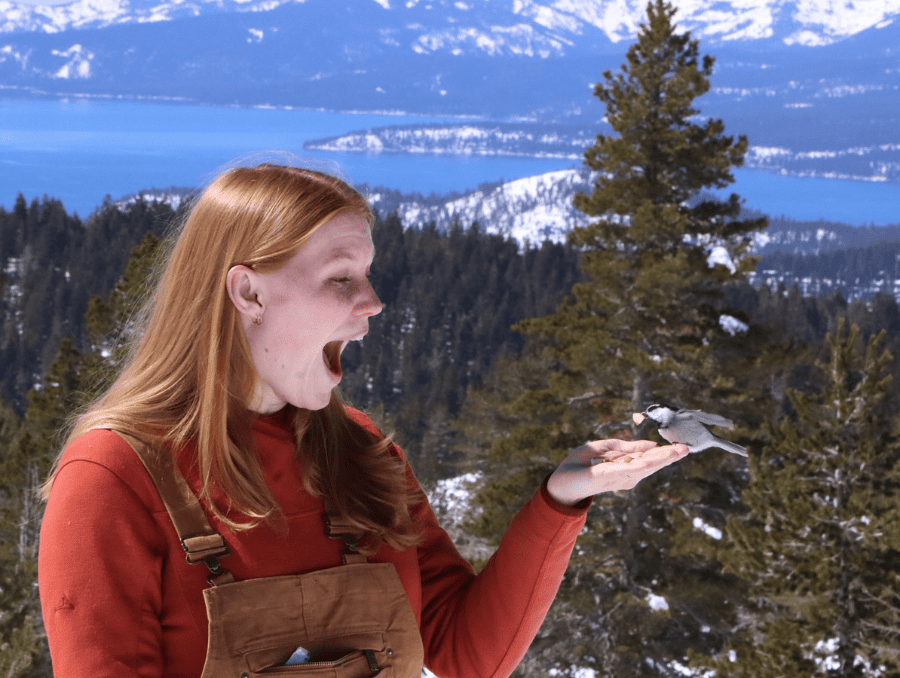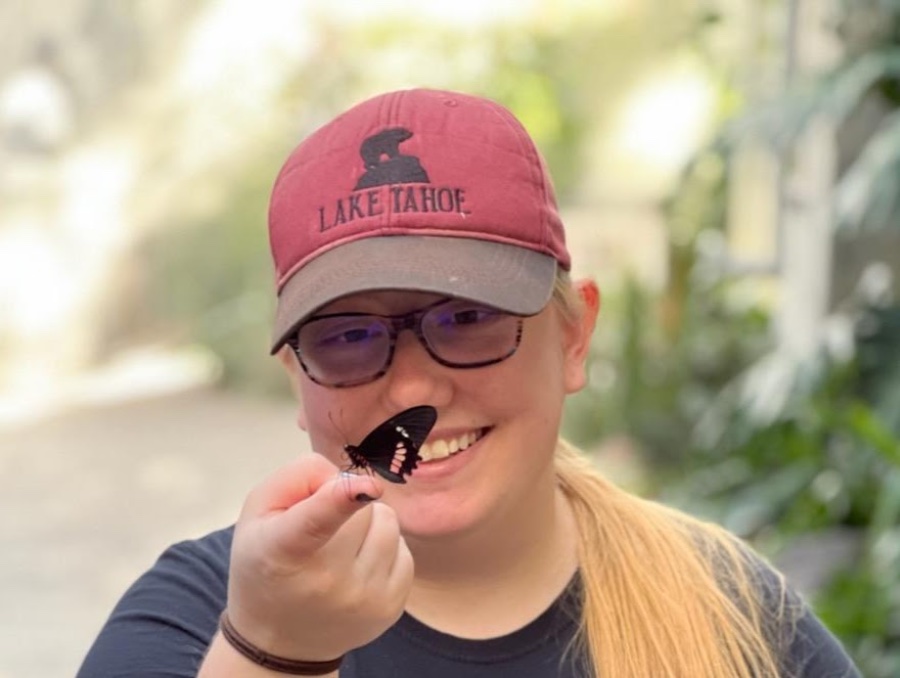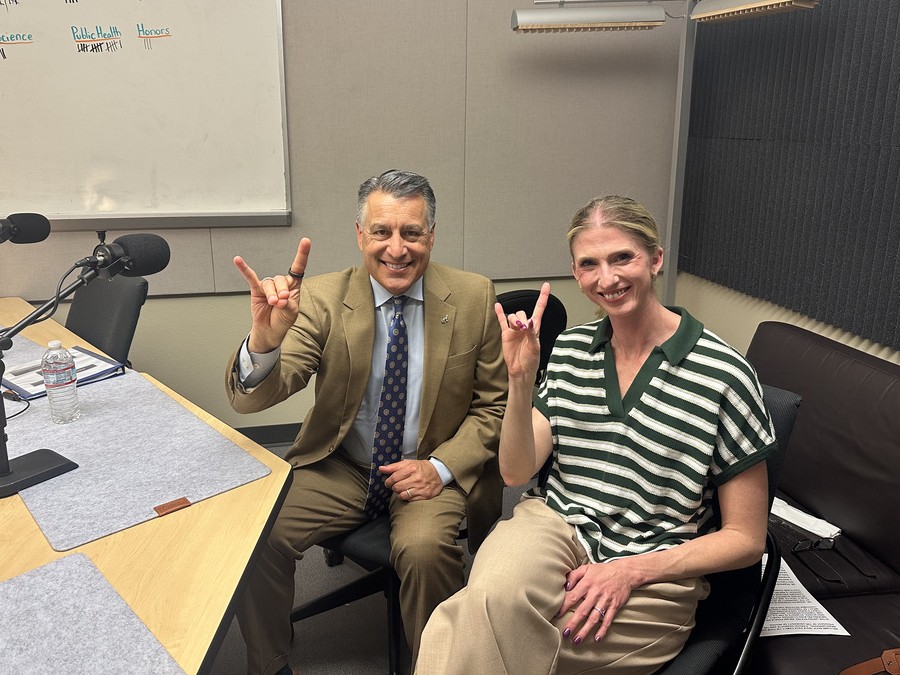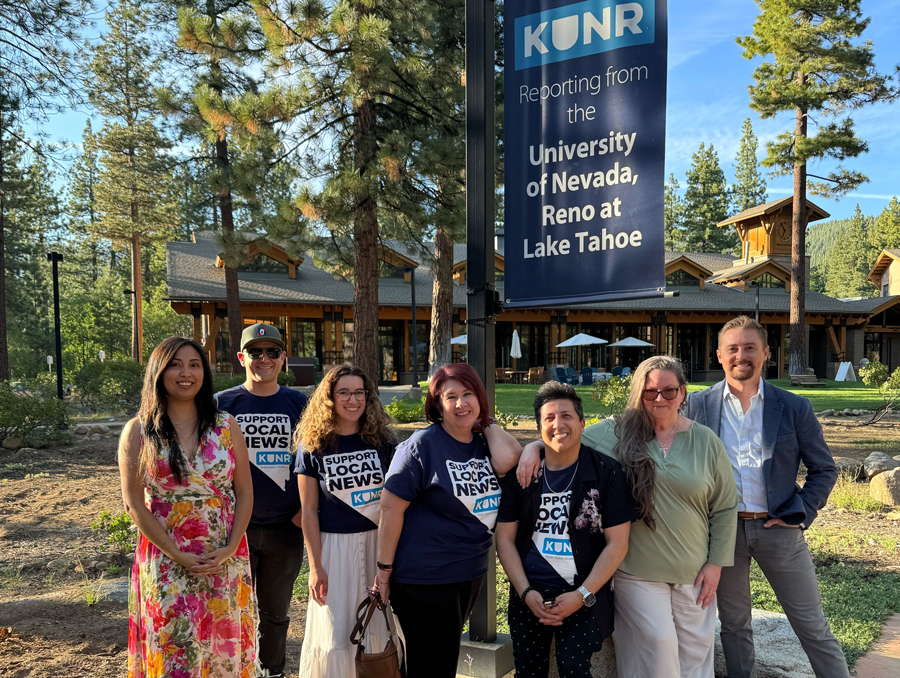Wright Thompson is very much a sportswriter of the age.
He's fluent in the understanding of new media (who can, after all, point out that Bill Simmons, a sportswriting master of all new media platforms, has a greater Twitter reach than The New York Times).
And, Thompson is conversant in the issues that both enliven modern sportswriting ("Competition," he said, "is the greatest cauldron ever") and bog it down ("Access," he said, "is the key to everything").
Yet what became apparent Wednesday morning during an informal, entertaining hour-long talk with students in the Reynolds School of Journalism's Linn Reading Room is that in many ways, Thompson, with his sensitively drawn, detail- and place-driven writing, harkens back to a different sportswriting time.
Thompson, the featured speaker Wednesday evening during the 48th annual Scripps Dinner at the University of Nevada, Reno, is one of the inheritors of a proud storytelling tradition through sports that dates back in this country to legendary figures such as W.C. "Bill" Heinz, Red Smith, Dank Jenkins, Frank Deford and Gary Smith.
As his Wednesday morning talk demonstrated, Thompson doesn't write sports so much as he writes people and places.
Whether it's going "Pumpkin Bowling" at night in Nazareth, Texas, while writing about a powerhouse girls high school basketball team, or gently reminding the nation of a time when "it was both the end of something and the beginning of something" with the forced integration in 1962 of the University of Mississippi and its last undefeated football team, Wright's writing is all about astute observation, and his own passionate nature.
"You need these huge, seething, tectonic plates concerning the human condition," he said of what makes a great story. Later, Thompson described his own all-in writing process as having an "element of willingness to go down the rabbit hole that is an exponential-izer" in the creation of the magazine pieces he has written since 2006 as a senior writer for ESPN The Magazine, ESPN.com and Simmons' latest multi-platform venture, "Grantland," an online and printed source for long- and short-form sportswriting.
Thompson, a native of Mississippi, said his road to becoming a serious sportswriter happened purely by chance, when, as a student at the University of Missouri, he was asked to drive John Walsh, executive vice president and executive editor of ESPN, "around for four days."
"I just kissed (his behind), shamelessly," Thompson, dressed in breezy white Panama hat, pink shirt and jeans, said with a smile.
Exposure to Walsh reinforced in Thompson the notion that a writing life, and telling stories in an often lyrical and illuminating way, was possible if Thompson worked hard enough.
Thompson couldn't emphasize that enough Wednesday. Doors open only if a person is willing to work hard at opening them, Thompson said.
"I worked real hard," he said, recalling his remaining time at the University of Missouri and the period that followed, where he worked to find work in journalism. Among his classmates at Mizzou was Seth Wickersham, who has also written for ESPN The Magazine. "When I look around at my group of friends in college, and where we are now, it is no way a reflection of who was the most talented 12 years ago.
"It's the people who wanted it the most, who worked the hardest."
Thompson, who is in his mid-30s, came into sportswriting during one of the field's pivotal moments. He's seen magazines move online, experienced the broad range of audiences a writer can have in the information age, and, perhaps most importantly, has come to understand that the present-day and the daily search for the next great story, is always the best time, whether it was 50 years or today, for any serious writing professional.
He did say, however, that the shift in journalism in recent years is undeniable.
"The brand used to be The New York Times, or the Memphis Commercial Appeal," said Thompson, who cut his sportswriting teeth as a beat writer first for Tulane men's basketball and later LSU football for the Times Picayune newspaper of New Orleans. "Now, the people are the brand ... Bill Simmons reaches more people through Twitter than The New York Times does. I think it's a very exciting time to be on the cusp of this industry."
Thompson said he often works "inside-out" on stories and story ideas. He'll see a 400-word newspaper story and wonder what's really behind the story: What is the conflict, is there tension, is there potential for resolution?
Once interested, his "half OCD-half ADD" nature will often kick in, and he'll be on the phone with a source, starting the process of how best to tell the story.
Thompson said that of all the things he does, access is of the greatest importance.
"Access is the key to all stories," he said. "You just want to be around and watch."
And sometimes participate. Thompson told the story of his experience in Nazareth, Texas, where one night he actually was asked to, and did, sample local moonshine.
"Nazareth moonshine is horrible stuff," he said. Then he added, drawing laughter from the students, "I mean, (former Packers quarterback and fellow Mississippi native) Brett Favre wouldn't drink this stuff."
He said that ultimately, as a writer, his primary goal is always, "You want to be looking for something and you want to be moved by it. That's what I try to do."
Not surprisingly, Thompson said his reporting and writing regimen is painstaking.
For a 10,000-word magazine feature - and Thompson has profiled everyone from the famed stock car driver Junior Johnson's second act as an octogenarian father who encourages a young son to race in his lead-footed and moonshine-powered footsteps, to the joyfully quirky, energetic LSU football coach Les Miles - Thompson will sometimes have as much as 700 pages of typed notes.
Thompson transcribes all of his taped interviews on his own, believing that to pay someone to do it for him would be "bad karma." Soon, his wall at his home in Oxford, Miss., looks like a massive explosion of Post-It Notes packages has just occurred, with each Post-It Note revealing dialogue, description and key narrative moments.
Thompson reins in the Post-It chaos on his wall by writing out, by hand, every scene and every quote of the story on the pages of a legal pad, followed by a one-page outline.
Every piece Thompson writes is driven by some of the most simple, yet effective tenets of good storytelling.
"There has to be conflict and resolution in every single story," he said, listing the great writing teacher and Pulitzer Prize winning journalist, Jon Franklin, as an influence. "A character undergoes a complication and is changed by it."
Thompson said he most enjoys working with his editor at ESPN, Jay Lovinger.
Lovinger, a former editor of such magazines as Inside Sports, Life and People, is the connective tissue between today's digitally hyperactive Twitter-driven sports media landscape and the more sinewy, prose-driven sportswriting world of a generation ago.
Lovinger understands well that, as Thompson put it, "newspaper stories are fact; magazine stories are understanding the emotional core."
The two work together to craft the stories that have become Thompson's calling card, stories about a woman in State College, Pa., overcome with grief and a total stranger to Jay Paterno, who falls into Paterno's unsuspecting arms the night before the memorial service for Paterno's dead father, Penn State football coach Joe Paterno. Or, stories like Thompson's visit to the live oaks of Toomer's Corner in Auburn, Ala., where the live oaks, part of the fabric of the Auburn University campus for generations, were poisoned by a jealous Alabama football fan. They are trees that Thompson cannot forget, nor should his readers, because they are trees, Thompson writes elegiacally, that fight for survival because, like all of us facing our own mortality, "The last thing a tree does before it dies is try to live."
"He edits me, and it's unbelievable," Thompson said of Lovinger. "He's just great. He has changed my life, the difference between me and five years ago. That's a debt I'll never be able to repay."
Thompson regularly speaks with Lovinger on the phone, sometimes every day.
Sometimes the two talk as Thompson arrives home following the reporting portion of his next major assignment.
Thompson said the hour's drive from the airport in Memphis to his home in Oxford is a welcome time to de-compress and think about what still lies ahead: the telling of yet another story.
"My favorite thing in the entire world is that one hour drive home," Thompson said, mentioning off-handedly that sometimes he reads and drives.
He stared at the students in the room and took on a mock, hushed tone for a moment before he related the many public service messages out there, including those at the Memphis airport, imploring people to be attentive as they drive home.
"Don't text and drive," Thompson said. Then he added, with an equally frenetic PSA earnestness, with one of his deep-bellied, hearty laughs, "Unless it's important."
Spoken like a true, modern sportswriter.
But also spoken with an old-fashioned intimacy and care, just like one of Thompson's stories, which, long after you read them, you are always sure to remember.









